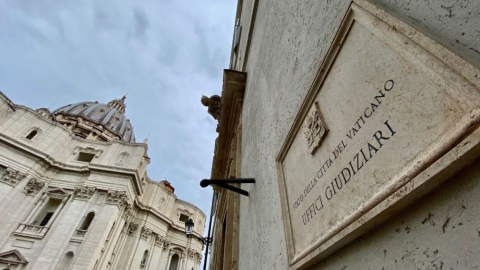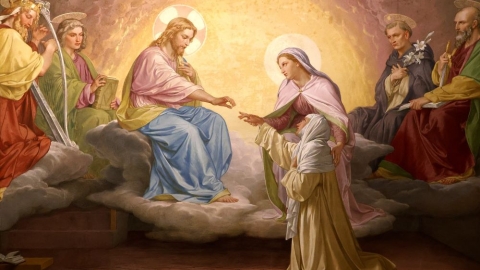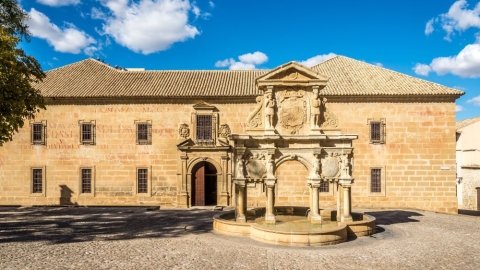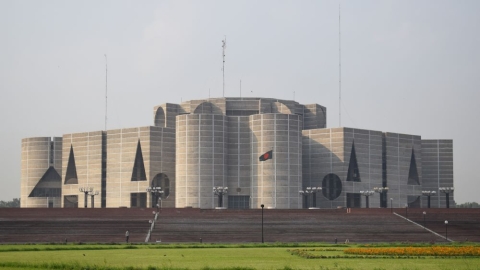Authority: The Real Challenge of the Synod (1)
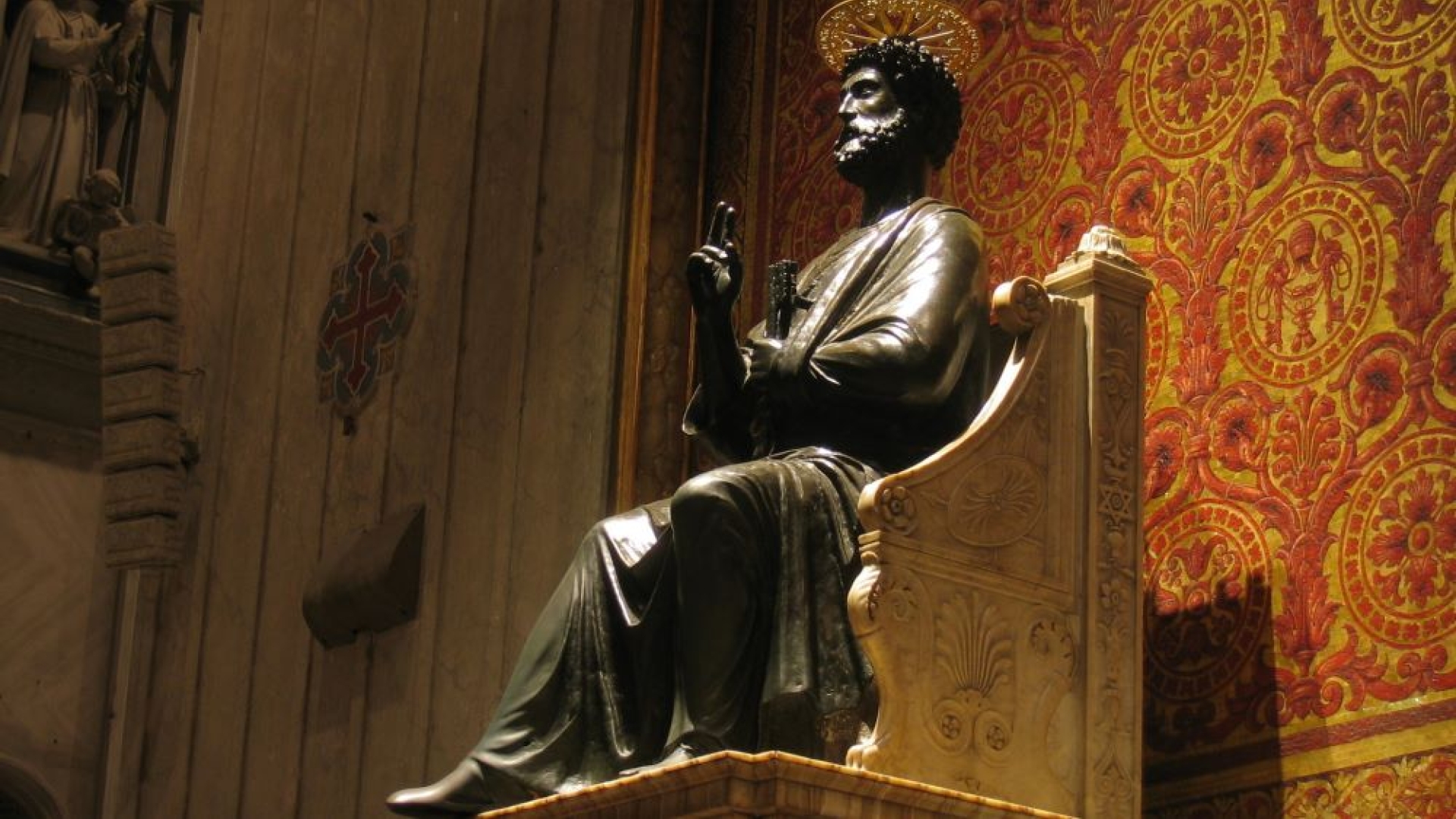
The recent episode of Pope Francis’s dismissal of Joseph E. Strickland, Bishop of Tyler, Texas, reveals one of the real issues of the Synod, whose summary report was published on October 28. This issue is the correct understanding of what authority should be in the Church. The following is an analysis by Fr. Jean-Michel Gleize, SSPX.
What will come out of the latest Synod? We will have to wait for the post-synodal exhortation that the Pope will publish to be able to really answer this question. Indeed, the present 2023 Synod is not yet finished, since it must take place over two sessions.
The Report therefore only states the reflections and proposals presented with a view to the second session, which will be held in the fall of 2024. The Pope is always free to publish what he wants in the meantime, but the fact remains that, for the moment, there cannot be further elaboration.
It would seem, however, that the real issue of the Synod has just been made quite clear by a recent episode: the Pope Francis’s dismissal of Bishop Strickland.
What Is Authority?
The word “authority” comes from the Latin verb “augere” which means to increase. According to etymology, authority designates the function of the one who is supposed to give an increase to those he governs, that is, an increase in freedom. Making others ever more free is the fundamental and radical act that defines authority as such.
And this freedom, of which authority must ensure the promotion, is that which the members of a society must exercise more and more with each other and by each other. They do this by acting according to the requirements of right reason, enlightened by faith, to achieve the perfection to which God calls them. This perfection is inscribed in the common good, which is the reason for life in society and for which authority is responsible.
Authority makes us free. It does not replace freedom, but comes to its aid and makes its exercise easier. The Angelic Doctor explains this point well, in particular when he speaks of the authority of the one who teaches:
“Of effects proceeding from an exterior principle, some proceed from the exterior principle alone; as the form of a house is caused to be in matter by art alone: whereas other effects proceed sometimes from an external principle, sometimes from an internal principle: thus health is caused in a sick man, sometimes by an external principle, namely the medical art, sometimes by an interior principle as when a man is healed by the force of nature.
“In such effects two things must be noticed. First, that art in its work imitates nature for just as nature heals man by alteration, digestion, rejection of the matter that caused the sickness, so does art.
“Secondly, we must remark that the external principle, art, acts, not as principal agent, but as helping the principal agent, which is the interior principle, by strengthening it, and by furnishing it with instruments and assistance, of which the interior principal makes use in producing the effect. Thus the physician strengthens nature, employs food and medicine, of which nature makes use for the intended end.” St. Thomas Aquinas, Summa Theologiæ, I, 117, 1, corpus.
And this is also how authority strengthens freedom and provides it with the means and remedies it needs to exercise itself correctly. In this way, the law decreed by authority has no other reason for existing than to provide the means for human freedom to conform to the law of God and to achieve the perfection of man. As Pope Leo XIII says, “Freedom consists in the fact that, with the help of civil laws, we can more easily live according to the prescriptions of the eternal law” [1].
Bishop Strickland did not understand things differently and that is why he also intended to use his episcopal authority, given to him in 2012 by Pope Benedict XVI, to give the true freedom of the children of God to his approximately 120,000 faithful. This is true freedom to conform to the true Gospel, with all its requirements, including the requirements of natural law.
This led him to be publicly critical of the latest Synod, like a majority of his American colleagues. As reported by Jean-Marie Guénois in Le Figaro of November 11, “Bishop Strickland criticized a series of decisions which could establish a form of female diaconate, the ordination to the priesthood of married men, the control by laymen of the episcopal power, and the blessing of homosexual couples, even if this last point was more contested than expected in October.”
Still, according to the same journalist, “in his letter of August 22, 2023 addressed to the Catholics of his diocese in northeast Texas, he rejects these developments point by point, relying on the post-conciliar teaching of the Catholic Church. He reached a conclusion which must have cost him dearly, since he suggested that Pope Francis would be schismatic: ‘Regrettably, it may be that some will label as schismatics those who disagree with the changes being proposed. Be assured, however, that no one who remains firmly upon the plumb line of our Catholic faith is a schismatic. We must remain unabashedly and truly Catholic, regardless of what may be brought forth... Therefore, standing firm does not mean we are seeking to leave the Church. Instead, those who would propose changes to that which cannot be changed seek to commandeer Christ’s Church, and they are indeed the true schismatics.’”
The “schism” in question here is based on a false conception of authority in the Church. It is a false conception where authority places itself at the service of the whims of a false freedom. Indeed, as the Swiss theologian Charles Journet [2] noted very well, freedom and authority are two correlative notions which will be distorted in parallel and simultaneously.
“Authority,” he adds, “is totally and radically subverted when it agrees to sacrifice the order of the ends to the will of the number, the law to the facts, obligation to caprice, the perfect to the imperfect, act to power” [3].
The misused authority abused by Pope Francis paralyzes the true freedom of the children of God because it remains silent instead of declaring loud and clear, as it should, that evil is evil and error is error. It places itself at the service of the false freedom of human rights by giving scandal through its ecumenism, by giving in practice access to Eucharistic communion to divorced and remarried people, and by refusing any discrimination against LGBT people.
And the Synod is ultimately only the crystallization of this false freedom, insofar as it wants to be the heir and continuation of the Second Vatican Council. “The Second Vatican Council,” declares the summary report, “was, in fact, like a seed sown in the field of the world and the Church. … the 2021-2014 Synod continues to tap into the energy of this seed and develop its potential. … In this sense, it constitutes a true act of subsequent reception of the Council, extending its inspiration and relaunching its prophetic force for the world of today.”
It was a prophetic force that wanted to welcome into the Church the false ideas resulting from the Masonic revolution, to accomplish “an official reconciliation of the Church with the world as it had become since 1789” [4]. It wanted to go ever further on the path of this aggiornamento.
Fr. Jean-Michel Gleize
Fr. Jean-Michel Gleize is professor of apologetics, ecclesiology, and dogma at the St. Pius X Seminary in Écone. He is the main contributor to Courrier de Rome. He participated in the doctrinal discussions between Rome and the SSPX between 2009 and 2011.
[1] Leo XIII, Encyclical Libertas, June 20, 1888.
[2] Charles Journet, The Spirit of Protestantism in Switzerland (Paris, 1925).
[3] Journet, ibidem, p. 156.
[4] Joseph Ratzinger, Principles of Catholic Theology. Building Stones for a Fundamental Theology (Ignatius Press, 1989).
(Source : La Porte Latine – FSSPX.Actualités)
Illustration : Photo 21862333 © Voloshky | Dreamstime.com

